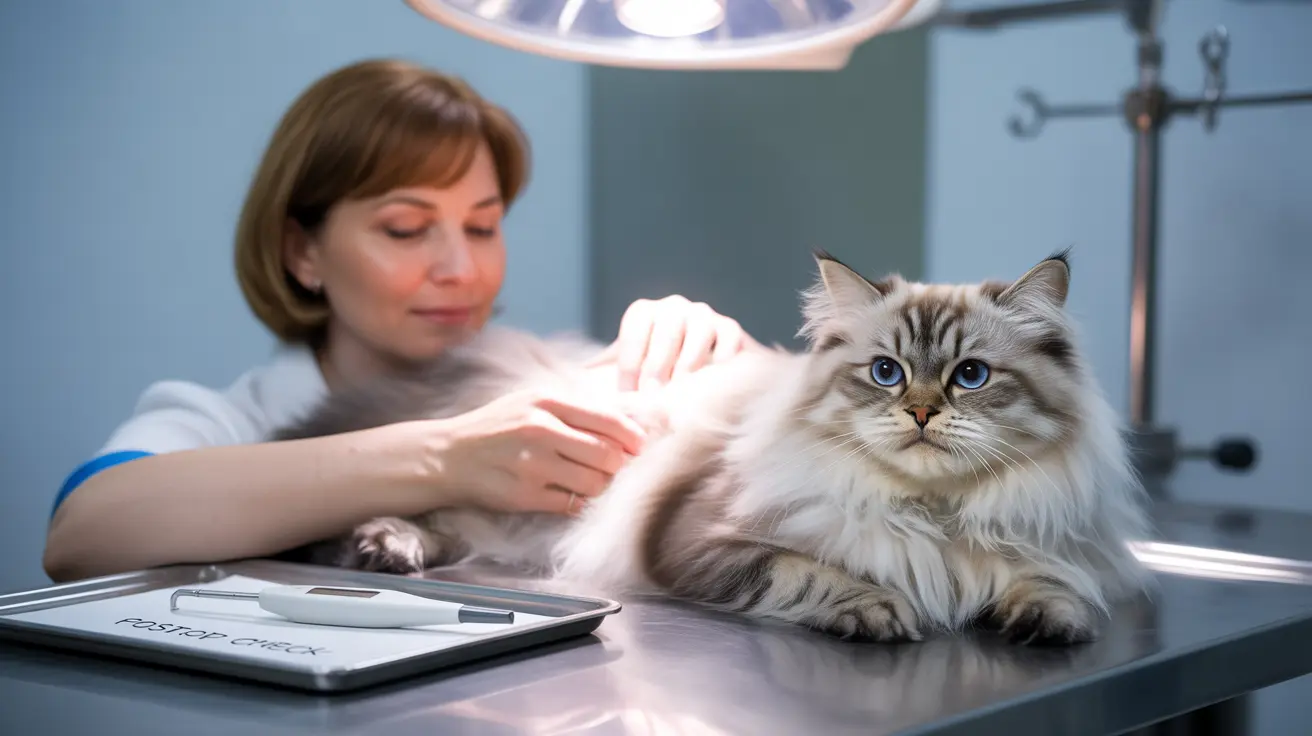Many cat owners wonder about their pet's reproductive health after spaying surgery. The simple answer is no - spayed cats do not have periods. However, understanding the changes that occur after spaying and recognizing potential complications can help ensure your cat stays healthy.
In this comprehensive guide, we'll explore what happens to a cat's reproductive system after spaying, why some cats might show unusual symptoms, and when you should be concerned about post-surgery behaviors.
Understanding Cat Reproduction and Spaying
Unlike humans, cats don't experience menstrual periods. Instead, they go through estrus cycles, commonly known as "heat." When a cat is spayed, the veterinarian removes the ovaries and usually the uterus, eliminating the hormonal processes that trigger these cycles.
A successful spaying procedure permanently stops all reproductive cycles and associated behaviors. This means your cat should no longer display signs of being in heat, such as excessive vocalization, restlessness, or mating positions.
Normal Post-Spaying Changes
After spaying, your cat will experience several permanent changes:
- Cessation of heat cycles
- No ability to reproduce
- Reduced territorial marking
- Calmer, more stable behavior
- Elimination of pregnancy-related health risks
Unusual Post-Surgery Symptoms
While rare, some spayed cats may exhibit behaviors that concern their owners. These can include:
Signs That Warrant Attention
- Continued heat-like behavior
- Unusual discharge
- Excessive grooming of the genital area
- Frequent urination
- Restlessness or agitation
Understanding Ovarian Remnant Syndrome
In some cases, cats may continue showing signs of heat due to a condition called Ovarian Remnant Syndrome (ORS). This occurs when small pieces of ovarian tissue remain after surgery, continuing to produce hormones that trigger estrus-like behavior.
If you notice your spayed cat displaying heat symptoms, veterinary examination is crucial to rule out ORS or other medical conditions.
Health Benefits of Spaying
Spaying offers numerous health advantages for cats:
- Prevention of reproductive cancers
- Reduced risk of mammary tumors
- Elimination of pyometra risk
- Longer life expectancy
- Better behavioral stability
When to Contact Your Veterinarian
Seek veterinary care if your spayed cat shows:
- Persistent heat-like behavior
- Unusual discharge or bleeding
- Signs of discomfort or pain
- Behavioral changes weeks or months after surgery
Frequently Asked Questions
Do spayed cats have periods or go into heat after surgery?
No, properly spayed cats should not have periods or go into heat. The surgery removes the reproductive organs responsible for these cycles.
What causes a spayed cat to show signs of heat or vaginal discharge?
The most common cause is Ovarian Remnant Syndrome, where small pieces of ovarian tissue remain after surgery. Other medical conditions can also cause similar symptoms.
How can I tell if my spayed cat has ovarian remnant syndrome (ORS)?
Signs include behaviors typical of heat cycles: excessive vocalization, restlessness, rolling on the floor, and attempting to attract mates. Only a veterinarian can confirm ORS through examination and testing.
Can spaying a cat prevent all reproductive behaviors and health risks?
While spaying eliminates most reproductive behaviors and significantly reduces health risks, some learned behaviors may persist. The procedure greatly decreases the risk of certain cancers and infections.
When should I take my spayed cat to the vet if she acts like she's in heat?
Contact your veterinarian if your spayed cat shows persistent signs of heat behavior, unusual discharge, or significant behavioral changes. Early intervention is important for addressing potential complications.
Conclusion
While spayed cats should not have periods or experience heat cycles, being aware of potential complications helps ensure proper care. Most spayed cats live healthy lives free from reproductive concerns, but always consult your veterinarian if unusual symptoms arise.






